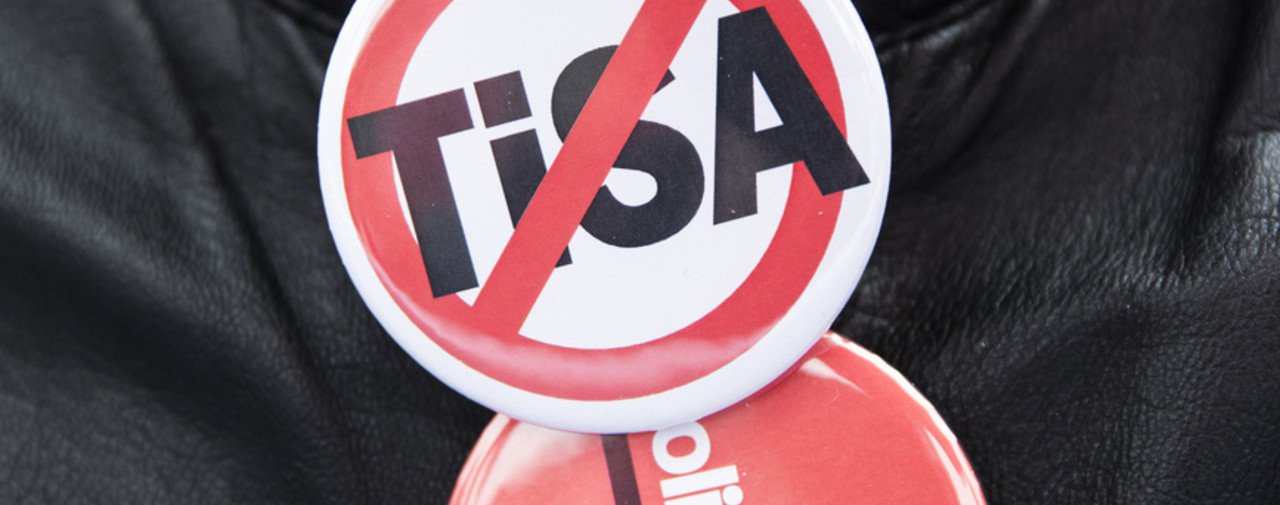New leaks confirm TiSA proposals that would undermine civil liberties
EDRi | 25 November 2016
New leaks confirm TiSA proposals that would undermine civil liberties
By Heini Järvinen
Today, on 25 November 2016, German blog Netzpolitik.org in association with Greenpeace published new leaked documents concerning the Trade in Services Agreement (TiSA), a “trade” agreement that is currently being negotiated between 23 members of the World Trade Organisation (WTO), including the European Union.
The new leaks confirm the problems identified in previous leaks, including serious threats to freedom of expression and protection of personal data of European citizens.
"The proposals on privatised censorship are particularly worrying," said Joe McNamee, Executive Director of European Digital Rights (EDRi). "Creating a power to undermine our free speech with no accountability is reckless and contrary to literally all relevant provisions of international law."
In September 2016, Wikileaks and Greenpeace Netherlands published other documents on TiSA. In the light of today’s leaks, what’s new from a civil liberties perspective?
- Liability protections: while having provisions to promote freedom of expression will be a step forward, the latest US made a proposal in TiSA which does not respect the rule of law and would remove rights to freedom of expression. The proposal is that internet companies would not be liable for any damage caused by voluntary restrictions of individuals’ free speech if they undertake such restrictions “in good faith” because they feel that the communications are “harmful or objectionable”. The proposal even extends to when this damage is caused implementing regulation-by-algorithm – in other words when using technical means, such as automatic filtering, to do so. This would privatise the regulation of the human right to receive, impart and seek information. It would almost inevitably lead into privatised censorship of completely legal information by governments (through pressures to online companies), or online companies themselves (acting in their own commercial interest).
- Net neutrality: The EU had taken a step towards the right direction and proposed some improvements to the text on net neutrality, the principle that all the internet traffic has to be treated equally, which is crucial for fair competition between online services, for innovation, and for freedom of expression. The leaks show that the US and Colombia proposal officially oppose these improvements. The US has net neutrality rules and this position was taken before the elections. Why hasn’t it supported the EU here?
- Data flows: The leaks show that the pressure to include “data flows” and “free flow of data” in the agreement is persistent. The European Commission announced previously that data protection will be left out of TiSA. However, the European Commission Directorate General for Trade (DG Trade) has stated that they will ensure free data flows and provisions against data localisation. Bringing these topics into the discussions will almost inevitably bring data protection and privacy onto the negotiation table.
A big coalition of organisations around the world is worried about the proposals in the draft core text, the e-commerce, telecommunications, financial services and localisation annexes of TiSA. These leaks are not reassuring.
TiSA is being negotiated formally since March 2013. A Ministerial Meeting to conclude the talks was scheduled on 5-6 December. The meeting has been cancelled due to outstanding issues and the recent developments in the US.






